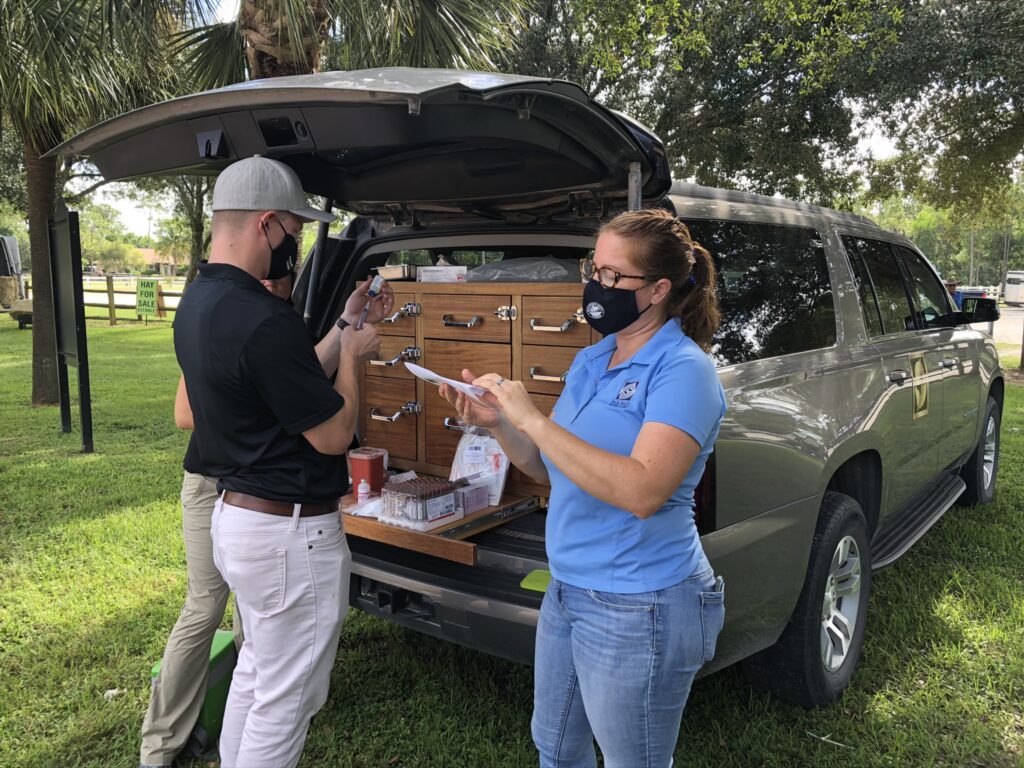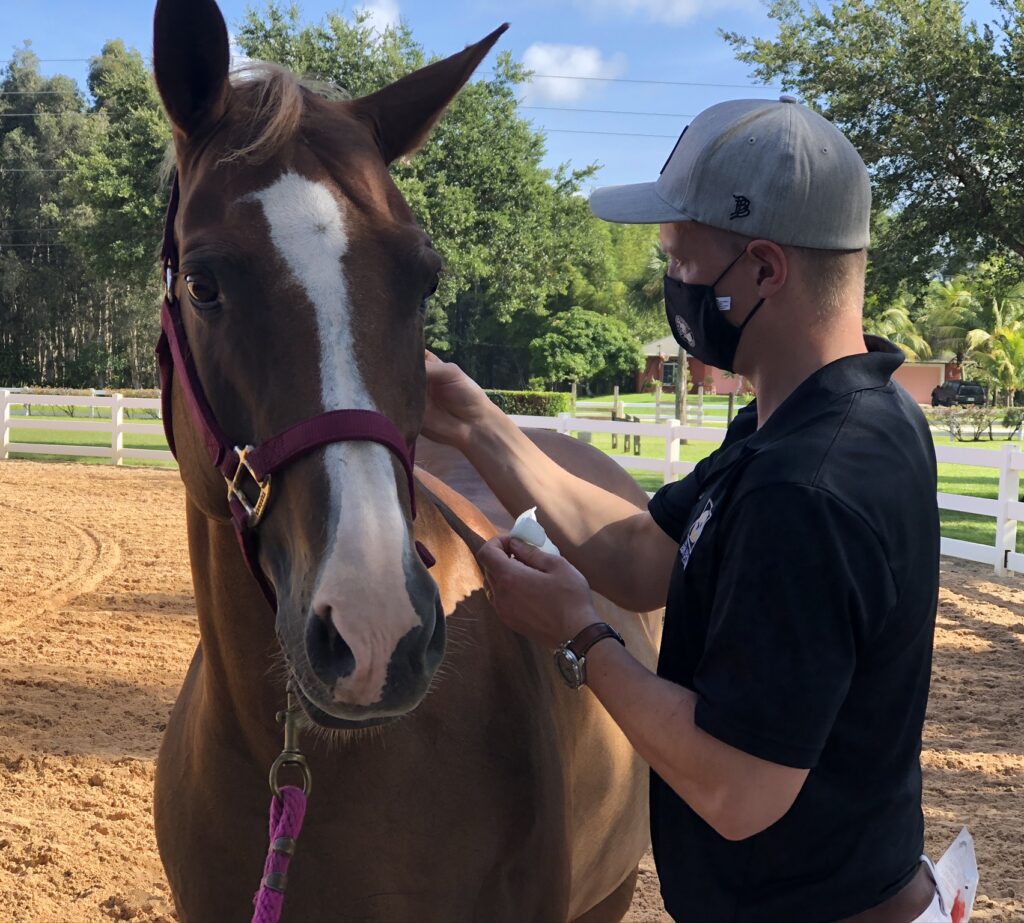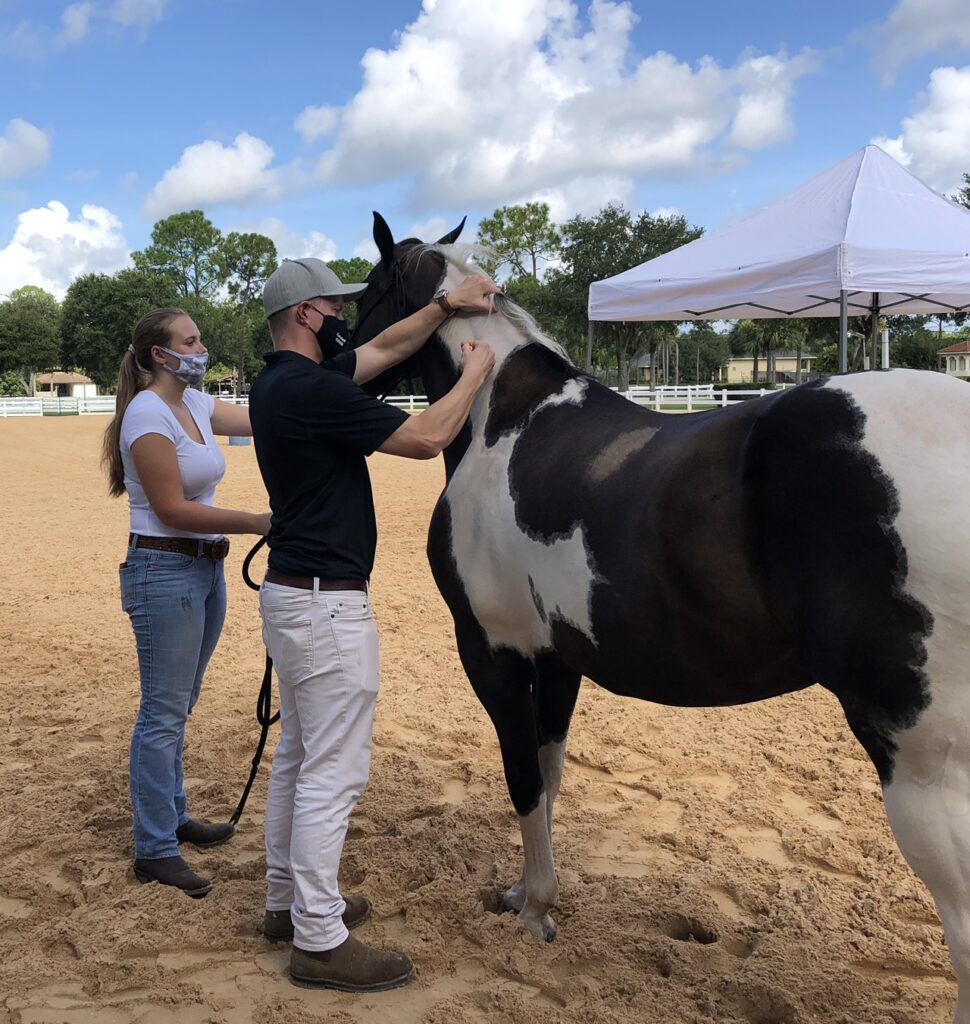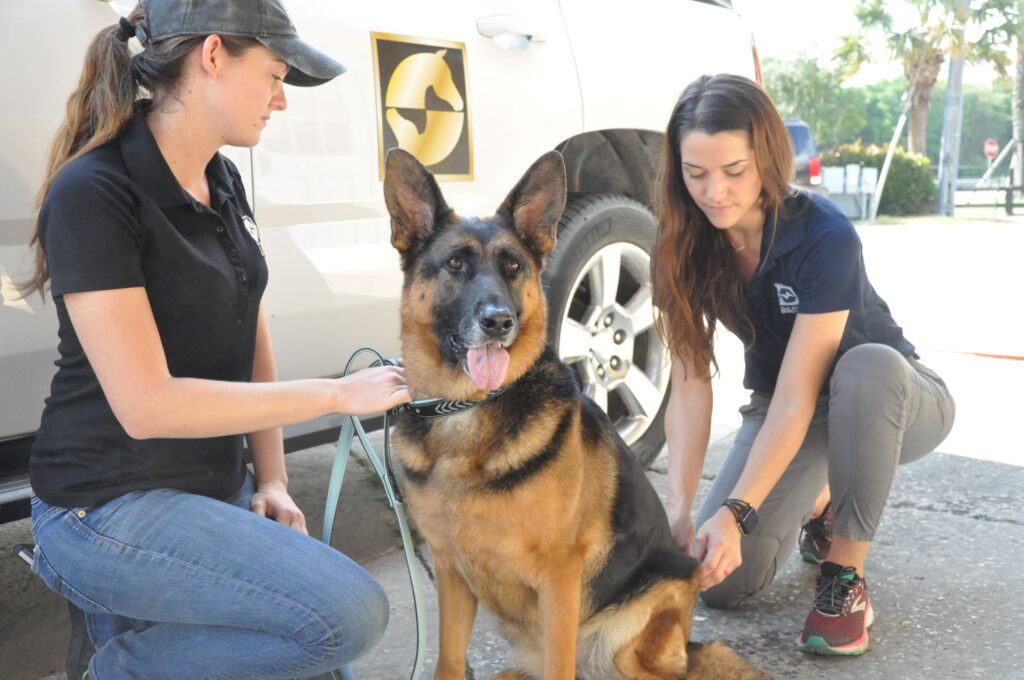Category: News
10:30 a.m. on March 4, 2021 – Equine Herpesvirus (EHV) is a highly infectious DNA virus found all over the world. Currently, there is an outbreak of the neurological form of EHV-1 in Europe, which originated in Spain. This has resulted in outbreaks in at least three other European countries and the cancellation of FEI competitions through the month of March.
EHV-1 is contagious and spread by direct horse-to-horse contact via the respiratory tract through nasal secretions or indirectly through surfaces that have been contaminated with the virus.
In Wellington, Florida, we currently have no reported cases of affected horses. Our location in the Winter Equestrian Capital of the World poses its own risk factors with large numbers of horses in close quarters and under the stresses of competition and travel. This heightens our shared responsibility to take specific measures that will help keep each horse safe from the virus. We can work towards this by implementing two strategies: biosecurity and vaccination protocols.
1. Biosecurity
Implementing thorough hygiene and biosecurity protocols is important at all times, even when an outbreak has not occurred. Biosecurity and preventing the spread of disease is fresh in our minds due to the COVID-19 pandemic, and owners must now implement specific protocols at their barns for the safety of their horses. Some biosecurity steps to prevent the spread of EHV-1 include:
- Limit direct contact of your horse with others whenever possible – think equine “social distancing.” Do not use communal water buckets and avoid mixing of horses wherever possible.
- Take your horse’s temperature twice daily and report any horse with a temperature above 101.5 degrees Fahrenheit to your veterinarian immediately.
- Pay close attention for signs of respiratory or neurological disease. Clinical signs of neurologic disease may include incoordination, hind limb weakness, lethargy, head tilt, inability to get up after laying down, and inability to maintain balance. Clinical signs of respiratory disease often include discharge from the nostrils or eyes or swelling in the throatlatch area.
- Do not share buckets, halters, leads, bridles, or other tack between horses to prevent possible cross contamination. Clearly label your equipment, and if you must share, make sure to scrub and thoroughly clean equipment with detergent before using with another horse.
- Prevent people in your barn from potentially transferring the virus by washing your hands between handling different horses. Bring a change of clothes and shoes incase a horse is suspected of being infected.
- If you suspect your horse may be infected or has a high temperature, immediately isolate them from the other horses at your barn and contact your veterinarian. Ideally, a potentially sick horse should be moved into a separate building or paddock, or to an isolation facility. Palm Beach Equine Clinic is equipped with a USDA-approved quarantine center and is readily available to initiate the laboratory diagnostics required for diagnosing EHV-1.
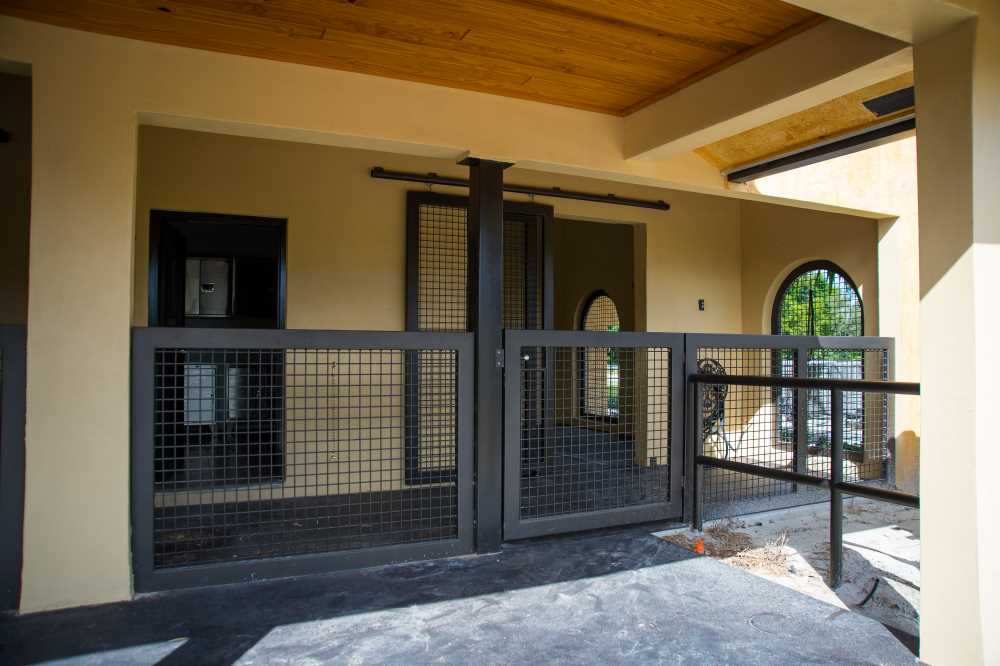
2. Vaccinate
Making sure your horse is up to date on all their vaccines will help strengthen their immune system against potential viruses. There are vaccines available to protect against the respiratory disease and abortion-causing EHV (Rhinopneumonitis vaccine), however, there is no vaccine available for protection against the neurologic form. Some EHV vaccines can reduce nasal shedding of the disease, therefore potentially reducing transmission. Please contact your veterinarian for any questions regarding vaccinating your horse.
What To Do Next
If you have recently imported a horse or are planning for the arrival of a horse from any country in mainland Europe, please take extra precaution by calling your veterinarian. In addition to implementing biosecurity measures in the barn, Palm Beach Equine Clinic veterinarians recommend that your imported horse receive a nasal swab and blood sample to detect the virus by PCR (polymerase chain reaction), which will identify the DNA of the virus.
EHV is a normally occurring virus in the equine population, but by following vaccination and biosecurity protocols, outbreaks can be minimized and contained. Early identification and reporting of the virus is key to tracing and preventing further spread. If you have any questions or concerns about your horse horse’s health, please contact Palm Beach Equine Clinic at 561-793-1599 to speak with a veterinarian.
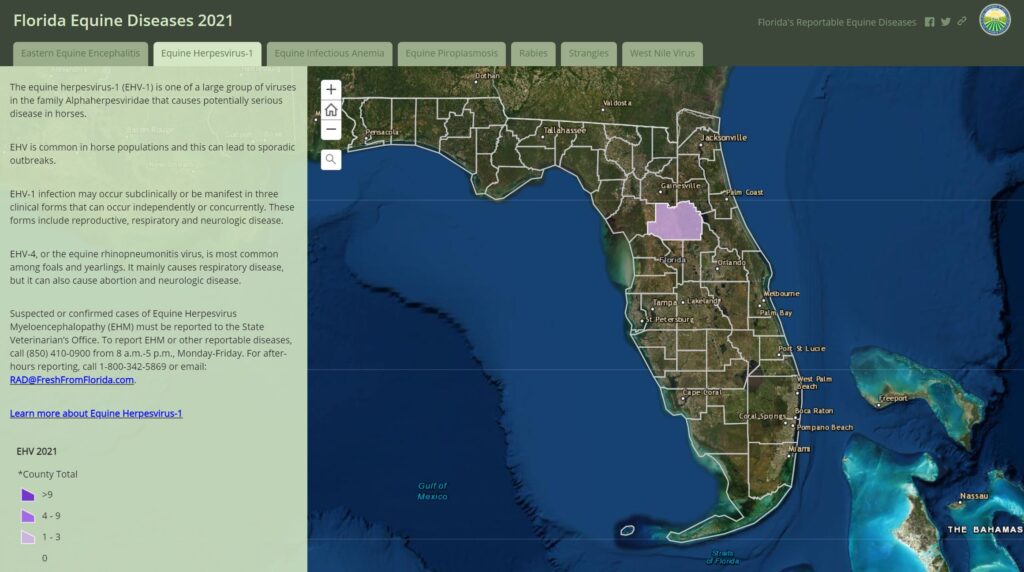
Additional Resources:
On-Site Veterinary Care Available at PBIEC Showgrounds Annex Office
Palm Beach Equine Clinic, the premier equine veterinary hospital, will return as the Official Veterinarians of the 2021 Winter Equestrian Festival (WEF) and Adequan® Global Dressage Festival (AGDF) running through April 4 at the Palm Beach International Equestrian Center (PBIEC) in Wellington, FL.

Palm Beach Equine Clinic’s world-renowned facility is conveniently located at the intersection of Southfields and Pierson Roads in the heart of Wellington, just minutes from PBIEC, the Equestrian Village, and the International Polo Club Palm Beach. Palm Beach Equine Clinic is comprised of more than 35 veterinarians, including board-certified surgeons, internists, and a radiologist. The team provides expertise in nearly all aspects of equine health and treatments, such as regenerative therapies, alternative medicine, dentistry, podiatry, and reproduction, and are supported by a dedicated, robust team of technicians and staff. Palm Beach Equine Clinic offers exceptional veterinary care and innovative, individualized care designed to help each horse achieve its full potential in and outside of the competition arena.
With the health and welfare of equine athletes a top priority for the upcoming winter show jumping and dressage competition seasons, Palm Beach Equine Clinic will continue more than three decades of service to both the year-round residents and visiting horses of south Florida. In addition to the full-service equine hospital, Palm Beach Equine Clinic veterinarians will be available each week for all competing horses at WEF and AGDF thanks to a convenient annex office located adjacent to the WEF stabling office on the PBIEC showgrounds. Palm Beach Equine Clinic veterinarians are onsite daily at the annex office to assist competitors throughout the shows with performance evaluations, diagnostics, and treatments, as well as emergency and standard horse care needs.
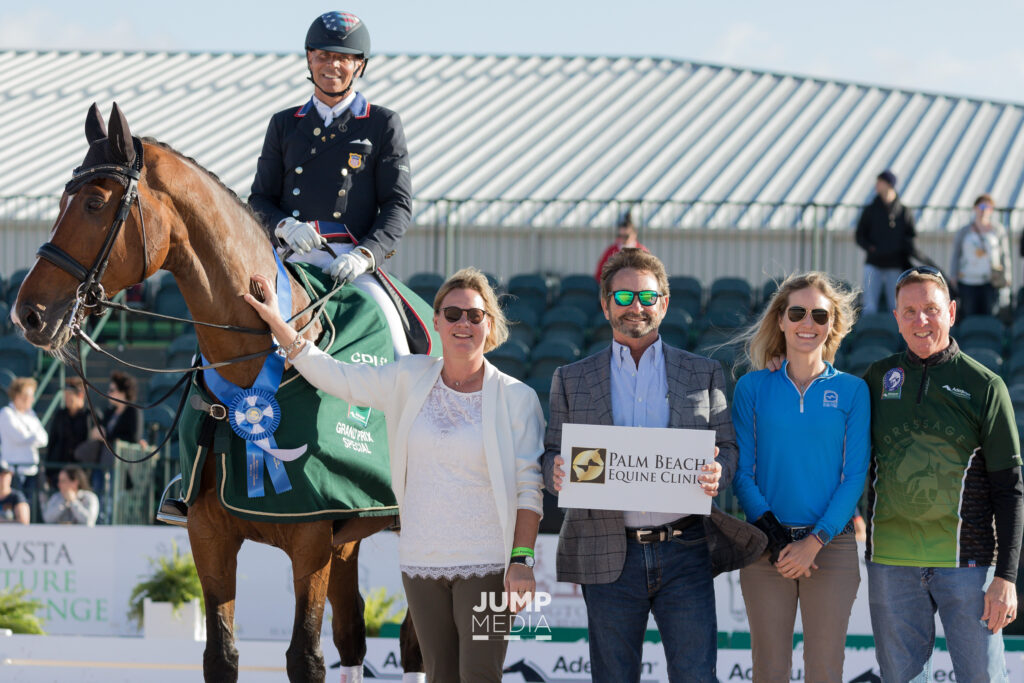
“Palm Beach Equine Clinic is dedicated to providing services and care to any and all equine patients, from performance-related injuries and sports medicine to colic and internal medicine cases,” said Palm Beach Equine Clinic President Dr. Scott Swerdlin. “The Winter Equestrian Festival and [Adequan®] Global Dressage Festival attract some of the world’s best equine athletes to south Florida. Whether we are treating Olympic-level athletes, or a trusted companion pony, they will receive the most advanced, dedicated care from our veterinarians. It takes a team to achieve that level of service, and we offer the most talented and devoted veterinarians in the business.”
Palm Beach Equine Clinic veterinary advances – available to new, returning, and referred clients – include:
Advanced Diagnostic Imaging
- Board-Certified Radiologist on Staff
- Standing Computed Tomography (CT) Machine
- Standing Magnetic Resonance Imaging (MRI)
- Nuclear Scintigraphy (bone scan)
- Endoscopy
- Digital Radiography and Ultrasonography
Surgical Services
- Three board-certified surgeons
- Recessed surgical suite for standing surgeries and procedures
- Top-of-the-line operating suites
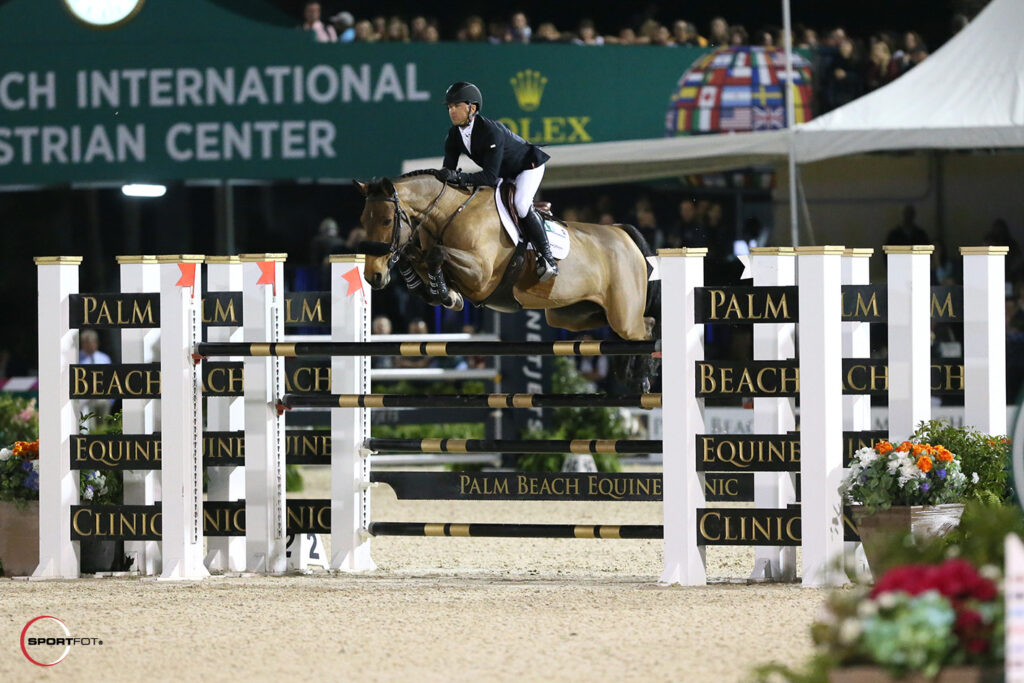
Comprehensive Internal Medicine Packages:
- Internal medicine specialists
- Respiratory evaluations
- Cardiac evaluations
- Gastrointestinal evaluations
- Neuromuscular evaluations
Alternative Medicine Treatments:
- Acupuncture and electroacupuncture
- Chiropractic manipulation
- Chinese herbal medicine
- Laser therapy (Photobiomodulation)
- Extracorporeal Shockwave
Specialty Care
- Regenerative therapies
- Isolation facilities with individual air flow systems
- Renowned sports medicine specialists
- On-site hospital with 24-hour staff
- Dentistry, podiatry, reproduction, and fertility expertise
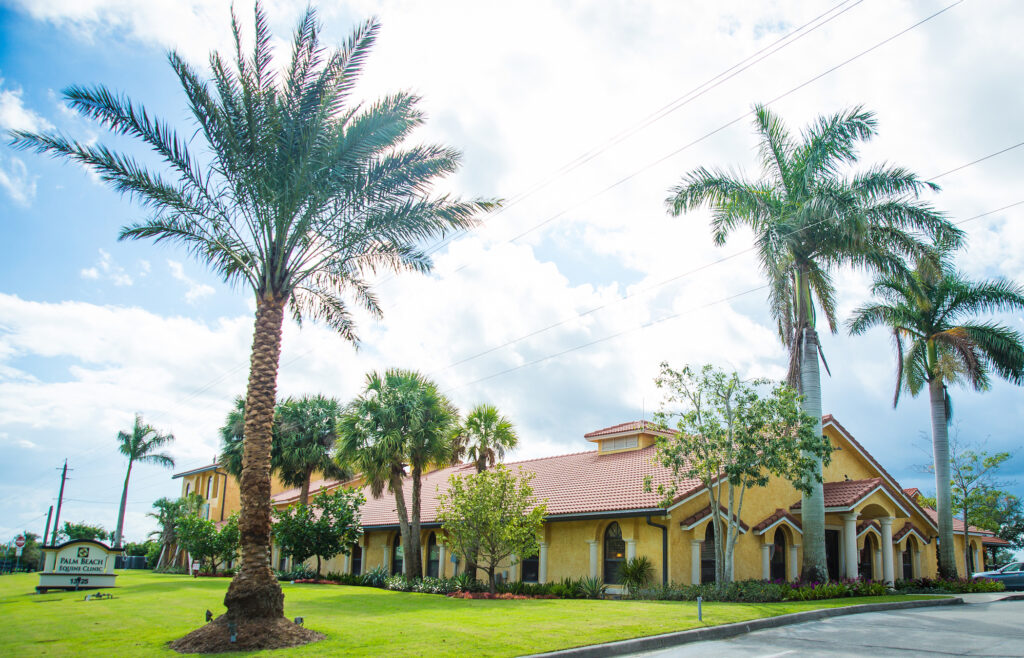
For more information on what Palm Beach Equine Clinic has to offer horses competing at WEF and AGDF, stop by the annex office located next to the stabling office on the WEF showgrounds or call 561-793-1599.
Appointment Request
Please fill out this form and our staff will contact you to confirm an appointment.
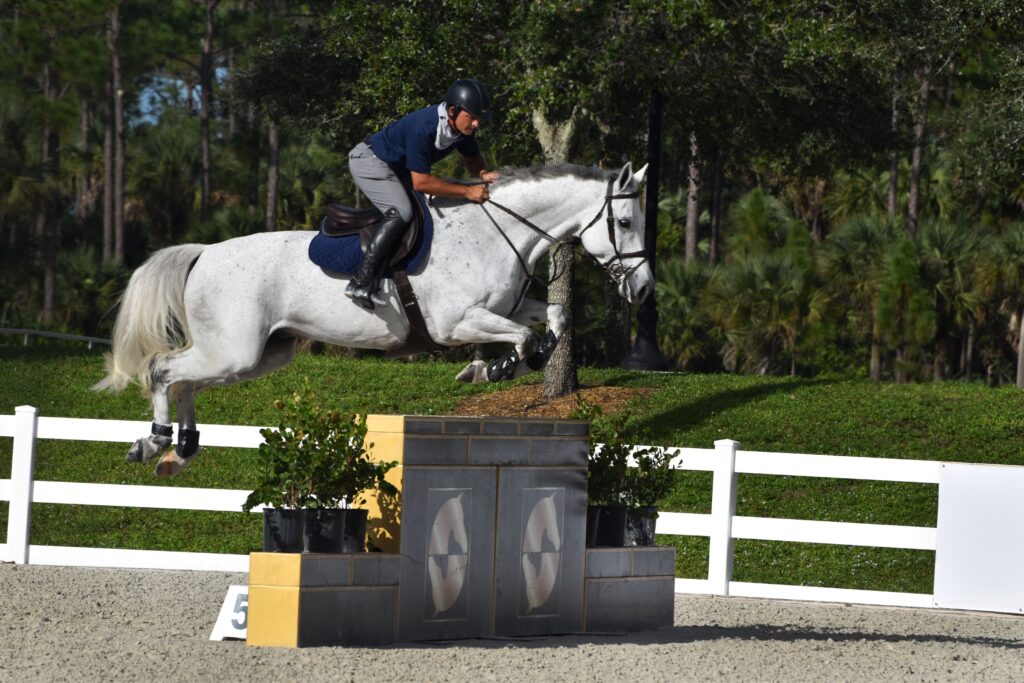
One of the world’s premier veterinary facilities, Palm Beach Equine Clinic (PBEC), has signed on to support M & R Equestrian’s Training Days as a sponsor of the pioneering event operating at Jim Brandon Equestrian Center in West Palm Beach, FL.
Founded by Olympic veterans Alberto Michan (ISR) and Juan Andrés Rodriguez (GUA), M & R Equestrian’s Training Days are held weekly from November through April, and offer riders of all levels the opportunity to school over a full course of show-quality jumps set by FEI course designers.
Every Tuesday, three arenas—two jumper rings and an arena with hunter courses—are available and set at varying heights throughout the day to accommodate horses and riders of all ages and levels. Training Days were created as a means to prepare young horses for the show ring, scout up-and-coming sale prospects, practice horse show elements like open water jumps, and to enjoy a relaxing, confidence-building experience for an affordable price.
“Palm Beach Equine Clinic is proud to play a role in supporting the equestrian community in our area and around the globe. This training series is another tool that riders can take advantage of to prepare their horses for competing on the main stage, and our veterinary team is here to support the equine athletes in that pursuit. A few of our team members may even be spotted riding their own horses there throughout the series.”
PBEC President Dr. Scott Swerdlin
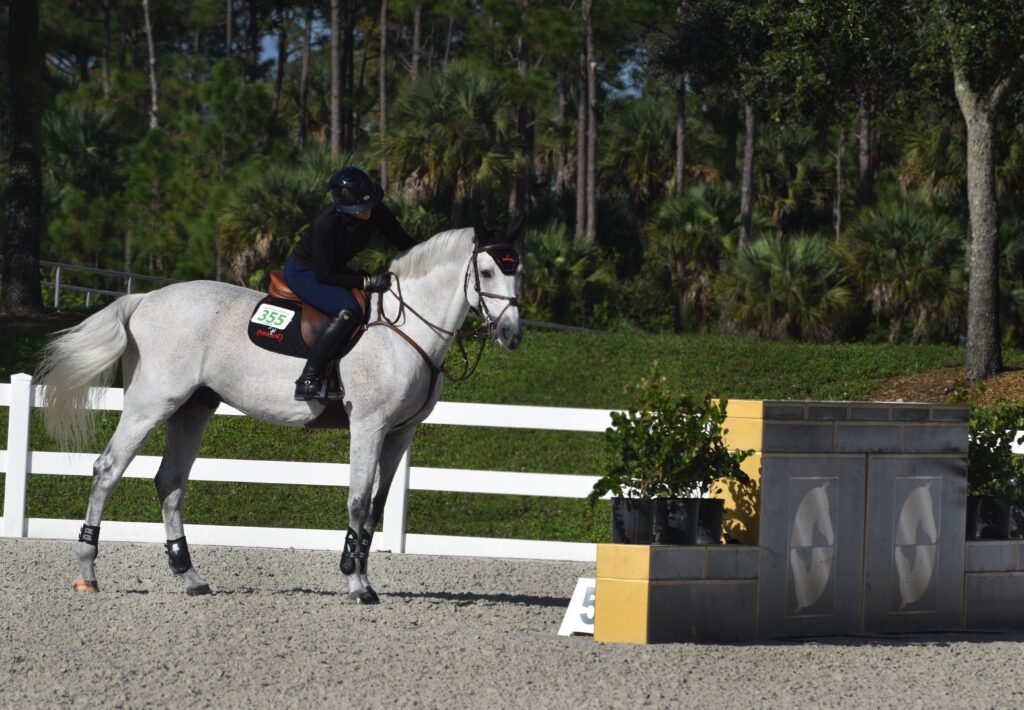
Dedicated to caring for equine patients
PBEC’s mission is to provide exceptional veterinary care for the horse and the team is committed to strengthening their relationship with clients and the community. Established in 1981, PBEC has earned a reputation across the nation and around the globe for providing the highest quality of healthcare for all horses, from Olympic caliber athletes to pasture pets. With over 35 distinguished veterinarians and a robust team of technicians, surgical, pharmacy, and hospital staff, PBEC is able to care for equine patients 24 hours a day, 365 days a year.
Participate in M & R Equestrian Training Days
M & R Equestrian Training Days will expand to a two-day schedule for 12 weeks beginning in January 2021, with Mondays featuring a one-of-a-kind opportunity to school under the lights during the evening. Each entry awards a horse and rider combination two minutes and 30 seconds in the arena, allowing them to jump as many fences or courses as they’d like while providing the perfect horse show dress rehearsal. For more information about M & R Equestrian’s Training Days, including updated weekly schedules and timing, find them on Facebook and Instagram.
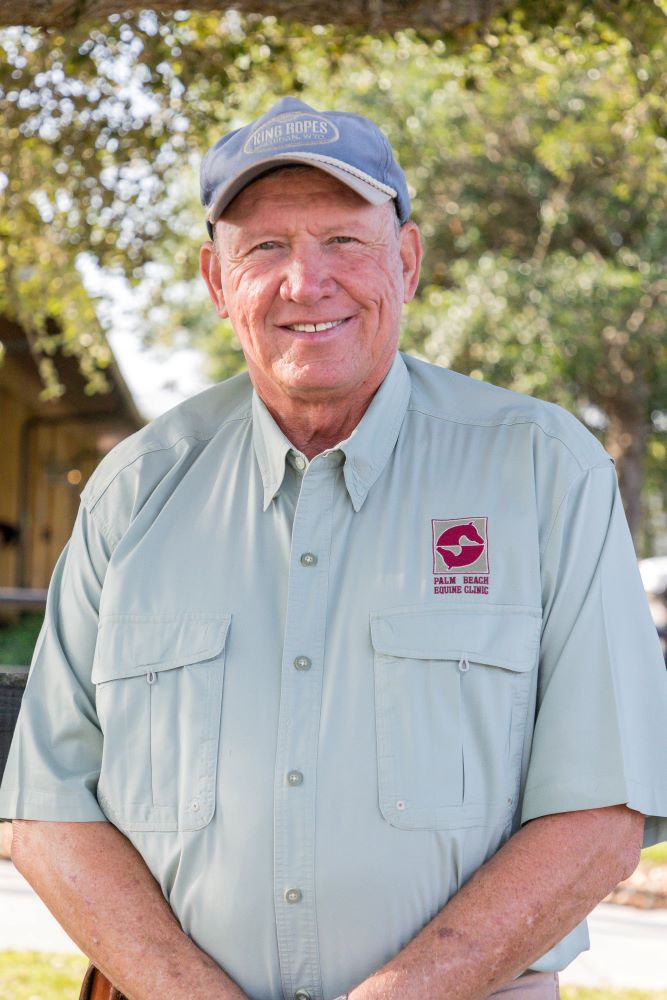
Palm Beach Equine Clinic Founder Recognized for Outstanding Contributions to the Sport of Polo
The Museum of Polo and Hall of Fame will honor Dr. Paul Wollenman as a 2021 Inductee of the Philip Iglehart Award in recognition of his exceptional lifetime contributions to the sport of polo on a regional and national level.
Beginning his career as the youngest graduate of Texas A&M College of Veterinary Medicine at only 21-years-old, he has dedicated nearly five decades to the polo and veterinary industries. He has taken an integral role in the polo community by educating teams on proper care and supporting the world’s top equine athletes. Dr. Wollenman has worked in an advisory capacity for the Equine Welfare Committee of the United States Polo Association (USPA). He has mentored Team USPA participants and the National Youth Tournament Series teams by giving lectures, counseling members on proper horse care, and aiding with their veterinary issues. As an amateur 2-goal handicap player himself, Dr. Wollenman is fortunate to thoroughly enjoy the sport and career in which he is revered.
When asked his thoughts on the Iglehart Induction announcement, Dr. Wollenman said, “Over the years, I had occasionally heard my name mentioned when people besides famous high-goal players were inducted. When Chrys Beal called to tell me that I was voted unanimously into this year’s honorees, I felt somewhat embarrassed and undeserving. Still, the influx of congratulatory phone calls and messages I have received about my induction from owners, polo players, and grooms has made me even more happy and proud of my life and career choices.
“I’ve been blessed by many wonderful and colorful relationships with friends and clients in the polo community,” Dr. Wollenman continued. “Most of all, I am incredibly lucky and thankful for my wife, Renee, who understands the demands of veterinary medicine and polo. She played polo collegiately and throughout her adult life, raised two wonderful sons who have both become doctors, and has supported me throughout the long, arduous hours of veterinary medicine.
“I’ve been so fortunate to have great veterinary partners and smart, driven associates who have helped build Palm Beach Equine Clinic not only into a massively successful equine hospital, but also an enjoyable place to work and grow professionally. It is truly my second home and has allowed me to concentrate on polo medicine,” he concluded.



Photos by the United States Polo Association.
“During a career that spans 48 years, Dr. Wollenman’s expertise as a veterinarian caring for the horses of some of the nation’s finest polo teams has been a factor in helping the sport of polo. Noted for his sound and practical advice as well as ingenious solutions to complicated injuries, he has spent most of a lifetime striving to improve the care and welfare of the horses that make polo possible.”
2021 Honorees Announcement by the Museum of Polo and Hall of Fame.
The Museum of Polo and Hall of Fame will recognize Dr. Wollenman and the 2021 Inductees this February through their media channels. A formal Induction Ceremony and Gala will be held in February of 2022 in lieu of the COVID-19 pandemic so that inductees’ families, friends and fans may be present. Dr. Wollenman was nominated by a committee of eminent and knowledgeable individuals across the sport of polo who voted to elect this year’s winners.
Read about the 2021 Polo Hall of Fame Inductees by going to the Museum’s Facebook page linked below.
2021 POLO HALL OF FAME INDUCTEES CHOSEN For the 32nd year of inductions into the Polo Hall of Fame, we have the honor…
Posted by Museum of Polo & Hall of Fame on Tuesday, November 3, 2020
More News on Dr. Paul Wollenman
- Dr. Paul Wollenman – The Legendary Polo Vet – United States Polo Association (USPA)
- Best Practices for the First Time Horse Buyer – USPA
- Team USPA Connects with Palm Beach Equine
Palm Beach Equine Clinic provided veterinary services for horse owners as part of a new clinic series by the Acreage Landowners’ Association, Western Equestrian Shows and Trails, and the Indian Trail Improvement District.
Loxahatchee, FL (August 18, 2020) – Kicking off a first-of-its-kind clinic series for horse owners of western Palm Beach County, several Acreage groups enlisted the veterinary team of Palm Beach Equine Clinic (PBEC) to provide hurricane preparedness expertise. The clinic, held on August 15, 2020, at Nicole Hornstein Equestrian Park in Loxahatchee, Florida, was originally scheduled for the first of the month, but was postponed in true Florida fashion due to Hurricane Isaias.
The Equine Hurricane Preparedness Clinic garnered a couple dozen attendees, masked up with their horses in tow. Kim Emmons, Western Equestrian Shows and Trails (WEST) Clinic Director and certified equine veterinary technician, is the driving force behind the event series.
“I’ve lived in and have been active in our local equestrian community for over 20 years,” said Emmons, who led the discussion on best practices for horse owners during hurricane season.
“The goal of this clinic series is to educate our local equestrian community and provide opportunities for horse owners of all ages and disciplines to become better, more well-rounded horsemen.”
Kim Emmons
Through attending equestrian events, teaching at camps, and her experience as a veterinary technician, Emmons has met many horse owners who lack the correct skills and knowledge on basic horse health and care. “I have always found it really rewarding to share my knowledge by teaching people the proper, practical skills for caring for their horses. Things such as correct leg bandaging, taking their horse’s vitals, listening to gut sounds, and teaching people on when they need to call a veterinarian are all essential for a horse owner to know. I used to teach an equine healthcare camp, and I am so proud to see those young campers grow into the smart, well-rounded equestrians they are today.”
The clinic series is free to attend, with fees for trailering in and offered membership packages, and will be based at Nicole Hornstein Equestrian Park for the foreseeable future.
PBEC provided special reduced rates on equine vaccinations, Coggins (Equine Infectious Anemia) testing, and microchipping services performed by Dr. Janet Greenfield-Davis and Dr. Charley McColough.
“We understand that, especially now in these pandemic times, many people are struggling to cover their horse’s expenses,” said PBEC veterinarian Dr. Greenfield-Davis. “We are happy to be here for the community by providing these essential services at more affordable prices and in a more convenient location for the Acreage horsemen.”
WEST, a new subcommittee of the Acreage Landowners’ Association (ALA), is led by fellow longtime Acreage resident Dixie Thiery.
“All of our efforts are focused on promoting and protecting the wonderful equestrian lifestyle we are lucky to enjoy here,” said Thiery. “We hope that WEST and this clinic series will help strengthen our community by giving people an easy, convenient way to learn and meet their neighboring equestrians. We are also very fortunate to be supported by the Indian Trail Improvement District, which is responsible for this park, and we are working with them to update our local trail system maps and better plan for equestrian-safe roadways and developments.”
ALA, WEST, ITID and PBEC plan to work together in the future by collaborating to bring horse shows, tack sales, exhibitions, and other educational events for equestrians to the area. The association’s next clinic is planned for September 19 and will focus on basic equine first aid.
A View 6-Feet from the Track
Dr. David Priest comments on veterinary life amid COVID-19 and specifically on its impacts in the Kentucky horseracing community.

Dr. David Priest is a PBEC veterinarian who treats horses in Florida during the fall and winter and operates in his home state of Kentucky during the spring and summer. Dr. Priest primarily focuses on high performance racehorses with a special interest in respiratory function and surgery. As Coronavirus closures swept the nation and all factions of horse sport, Dr. Priest has been a prime witness to the impacts on the racing community from the bluegrass state.
By the time I returned to my family’s farm and residence in Kentucky on March 26, the commonwealth had already issued a stay at home order. The normally incredibly busy Keeneland Racecourse April Sale had been cancelled with no horses being allowed to stable at that track. I wasn’t surprised by that decision, given the circumstances, but it certainly had a profound impact on the horse industry and racing in Kentucky.
My normal daily care of horses at Keeneland during April, which is typically my busiest month, was non-existent. However, as a veterinarian and farm owner, I consider myself incredibly fortunate during this challenging time. I have still been treating horses daily, primarily those with more pressing medical needs, as well as horses at my family’s farm, which includes thoroughbred lay-ups, mares with foals, and dressage horses. All in all, I feel incredibly lucky.
Tracks here and across the country have been hit hard. Trainers whose livelihood depends on racing have just been doing what they can to keep horses going and giving them time turned out if possible. Its still a waiting game on when live spectator racing will return to Kentucky.
Churchill Downs began racing without spectators on May 16. Everyone that enters the track is required to have a negative COVID-19 test performed by Churchill Downs staff. They’ve set in place required temperature checks and face masks. I work mainly at Keeneland, which is a bit more relaxed in their protocols and is now allowing stabling and training for a small number of horses.
In central Kentucky, breeding thoroughbreds is king. The yearling sales, beginning in July and peaking in September, are the lifeblood of the breeding industry. There is tremendous uncertainty about these sales and what impacts this recession will cause. People typically come from all over the world for these sales where yearlings can be bought for $500,000 to well over $1 million dollars. There may be hundreds of thousands of dollars ties up in stud fees and expenses for a single yearling. Those profits are essential to supporting the entire industry.
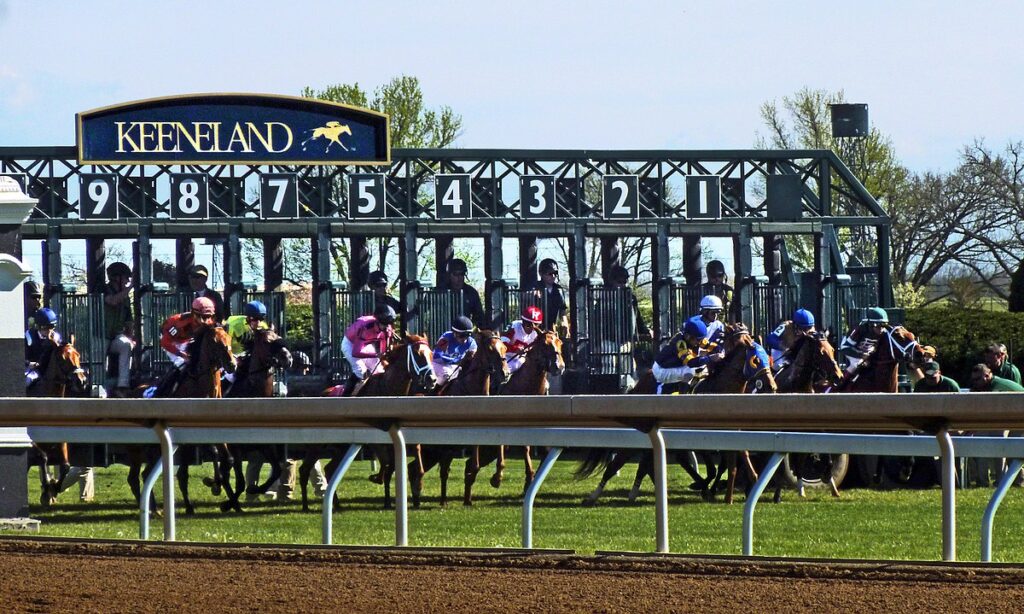
To say there is still a lot of uncertainty is an understatement. Personally, the real saving grace is that we can all focus on what we can control, which is taking care of our horses every day. That part hasn’t changed much at all, thank goodness for that. The rest of it is just going to have to sort itself out with time. Racing in some form will survive this. What exactly it will look like, no one can be entirely sure.
Stay in the loop on all Palm Beach Equine Clinic news and happenings by subscribing to our newsletter.
The following information was requested by the Village of Wellington and posted at https://www.wellingtonfl.gov/767/Equestrian-Information
By Dr. Scott Swerdlin, President of Palm Beach Equine Clinic
For the health and safety of ourselves, our loved ones and the horse community, we must adhere to the recommendations from the Center for Disease Control and Prevention to help reduce the spread of COVID-19. We are fortunate that Wellington, specifically the Equestrian Overlay Zoning District, is not a high-density area. The Village offers picturesque idyllic weather beautiful horse farms and an abundance of expertise in all facets of the equine industry. Now is a unique opportunity for those who had been occupied by hectic schedules to take a step back, de-stress and even enjoy social distancing while saddling up.
Let’s make the most of this time while awaiting the demise of the novel coronavirus by continuing to ride and train our horses. Let’s try to keep a degree of normalcy in our daily routines at the farm and use this time wisely by improving our skills as horsemen. Let’s use this time to ensure that our horses and riders are healthy, fit and ready to resume competition when the appropriate time arrives.
Adjusting to Riding and Horse Care While Staying Healthy and Safe
Spending time riding and caring for your horse is a productive use of time. However, it is imperative that we proceed safely. Suggestions that I would make to help equestrians adhere to local, state and national health recommendations include:
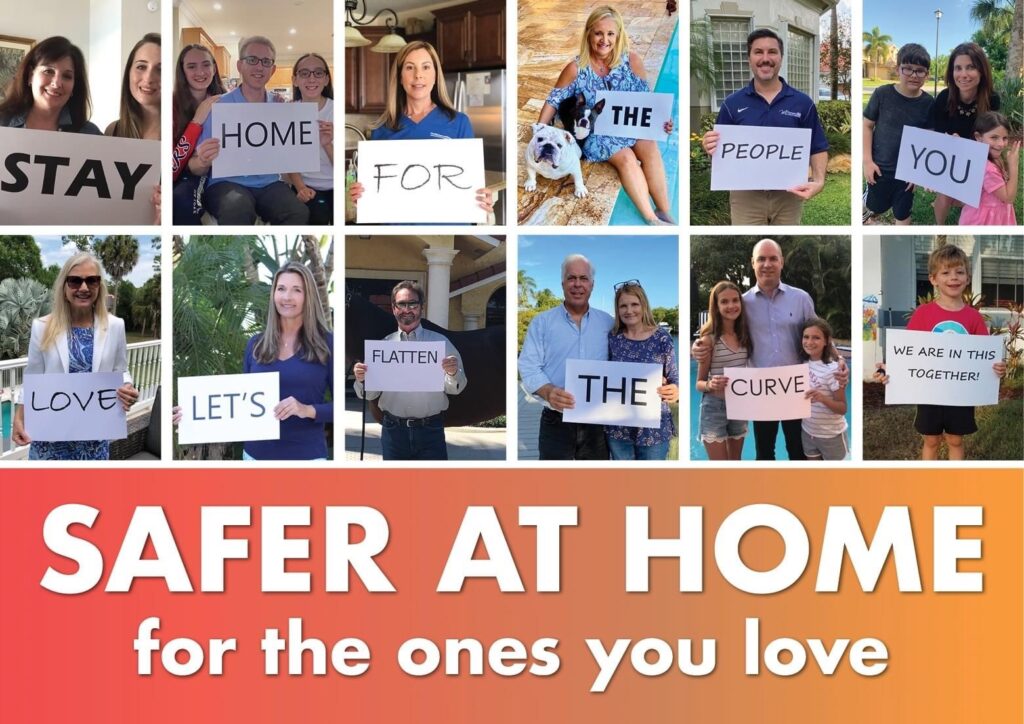
- Make Social Distancing mandatory at the barn. Everyone at the barn, including riders, parents, trainers and grooms, must practice Social Distancing by keeping six feet away from others. No exceptions! Do not permit individuals to congregate in the tack room or aisle ways. While in the saddle, please keep a safe distance away from fellow riders. Many facilities are limiting the number of people allowed at the barn or in the riding ring at any one time. Establishing scheduled riding times may help to streamline this while allowing everyone to participate with their horses. In addition, riders should severely limit the number of guests that they bring onto the property.
- Be vigilant with cleaning and sanitizing protocols by including surfaces and everyday objects often overlooked, such as whiteboard markers, doorknobs, stall latches, grooming brush handles, and crossties. Be mindful of disinfecting reins, saddles, and stirrups and washing brushes, polos, wraps and saddle pads. Barn staff should implement a routine of wiping down barn cleaning tools, such as pitch forks, wheelbarrows, etc.
- Make sanitizers, alcohol spray bottles or disinfecting wipes available throughout the barn. Washing your hands is one of the most effective ways to prevent the spread of this disease, so try to wash your hands upon arrival at the barn, before leaving, and insist that your staff wash their hands between handling different horses.
- Make suitable arrangements for reliable backup care in the event that you or your horse’s caretakers become sick. Organize detailed written instructions on feeding, medications and general care of your horse and provide these written instructions to the barn manager.
- Meet with your staff and grooms regularly to make sure everyone is being consistent in safety and cleaning protocols and has the most up to date information. Have them self-monitor for any signs of fever, coughing or sickness. If anyone experiences any signs of COVID-19, they should be required to remain in their homes and self-isolate to prevent further spread of the coronavirus. Work with your staff to ensure they are taken care of and compensated, if possible, during sick time. Likewise, if anyone suspects that they may have been exposed to COVID-19 or has travelled to areas where the virus is active within the past month, then they should not go to the barn for 14 days.
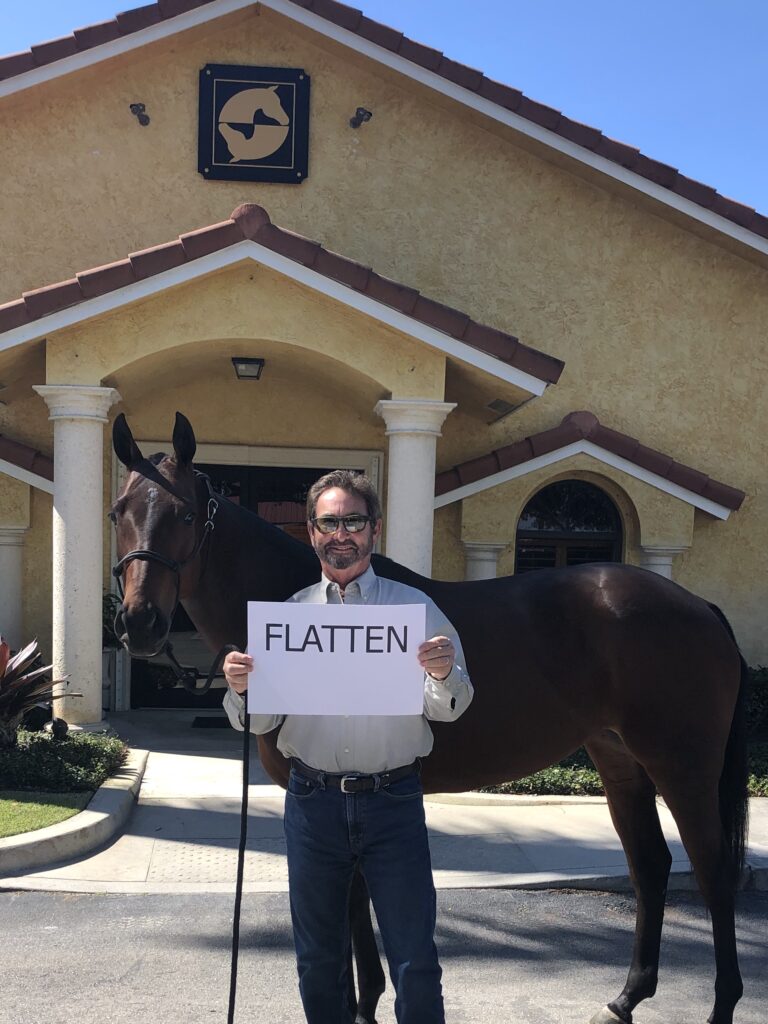
Our horses are blissfully oblivious of the pandemic, and we must remember that they still need daily attentive care. With the COVID-19 pandemic, we must adjust to help flatten the curve while remaining dedicated to the health, training and care and of all our horses. Should anyone have any questions or need assistance with caring for their horse’s health, please call Palm Beach Equine Clinic at 561-793-1599.
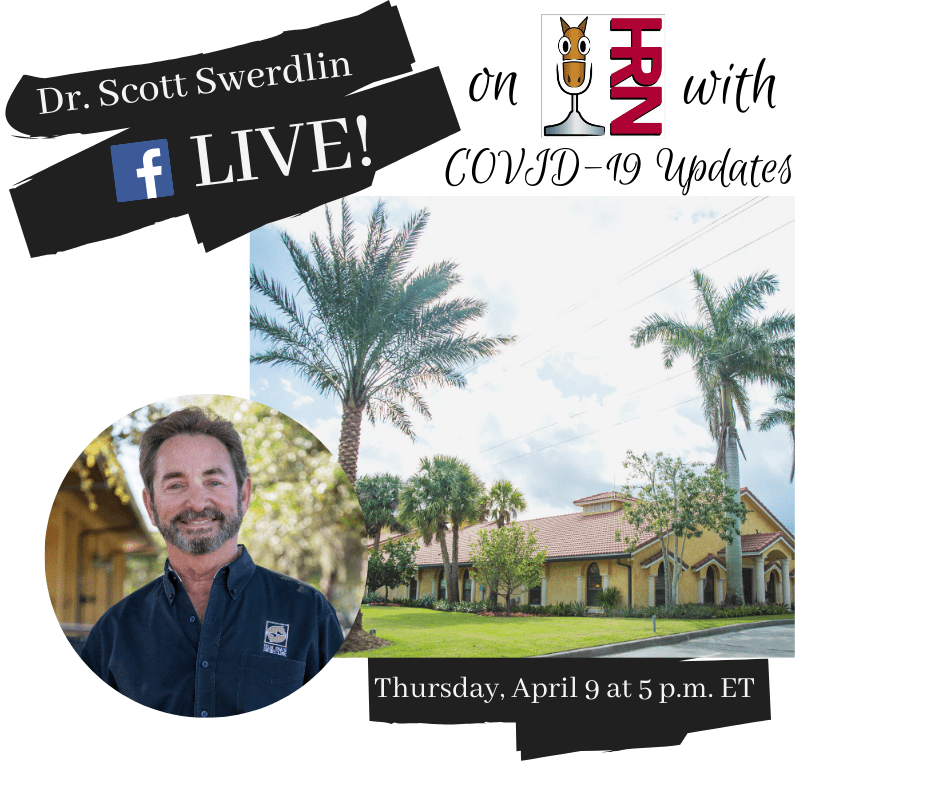
Dr. Scott Swerdlin talks COVID-19, equine veterinary medicine, and horse industry impacts with The Horse Radio Network host Glenn the Geek.
Listen to the Horse Radio Network’s interview with Palm Beach Equine Clinic President Dr. Scott Swerdlin. At about 4:30 into the video, Dr. Swerdlin talks about how veterinary clinics and equestrians are adjusting to life amid the novel coronavirus pandemic. The Horse Radio Network is the leading online radio (podcast) network for horse lovers worldwide.
Dr. Swerdlin is a Florida native whose family raised cattle and horses. After attending Tulane University, he pursued a master’s degree in equine reproduction at the University of Florida, and graduated from Auburn University School of Veterinary Medicine in 1976. Dr. Swerdlin was then appointed Chief of Clinical Services at Clark Air Force Base in the Philippines.
Following his tour in the military, he started a private practice in south Florida. He served on the state Board of Veterinary Medicine from 1981-1987, and received the Gold Star Award for outstanding contributions to veterinary medicine in the state of Florida. In 1999, he became a member of the Royal College of Veterinary Surgeons and is licensed to practice in Great Britain
More Coronavirus News & Updates
No matter what life may bring, our pets are here for us.
And Palm Beach Equine Clinic is here for them.
In our commitment to the health, safety and wellbeing of our patients, clients and community, Palm Beach Equine Clinic is expanding to treat all four-legged members of your family.
Whether you are concerned for the health of yourself, your loved ones, or simply doing your part to flatten the curve, our team of veterinarians is here to help by prioritizing the the health of your animals.
Save yourself from the stress and risks associated with taking your pet to the veterinarian. Please contact Palm Beach Equine Clinic for your small animal veterinary needs. A team of Palm Beach Equine Clinic veterinarians is able to care for your pets through select small animal veterinary services during this unsettling time.
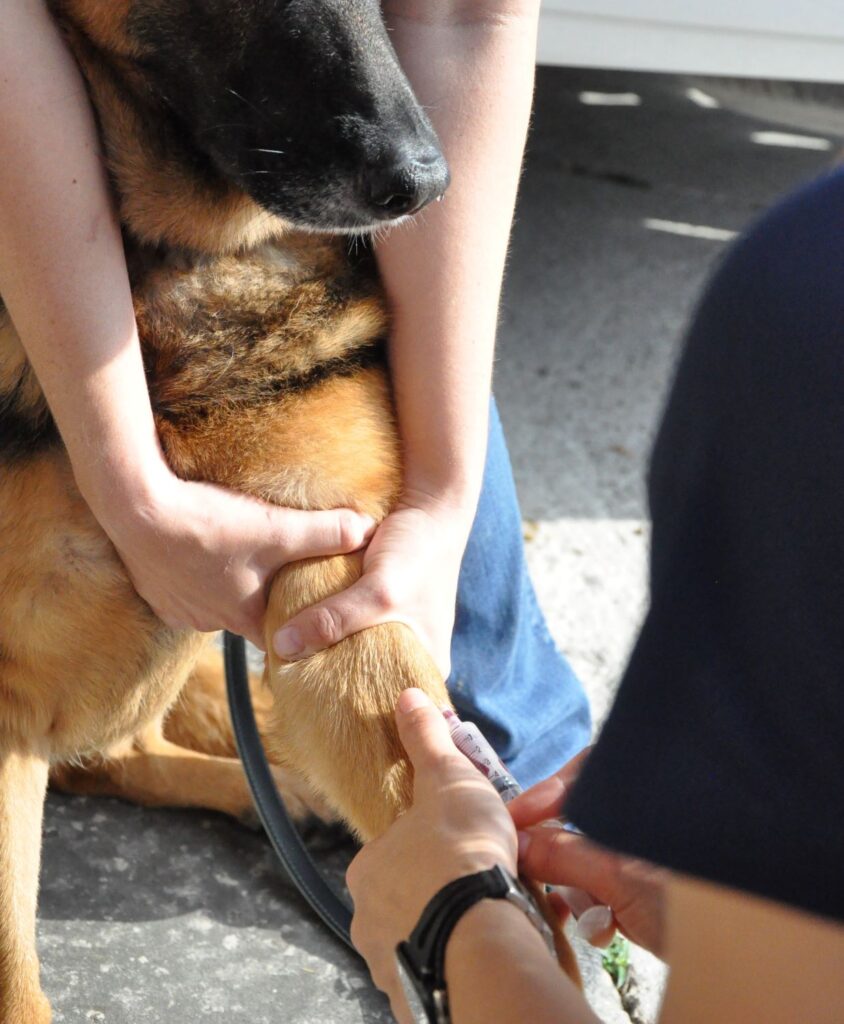
Here for the Health of All Barn Critters
Whether at Your Farm or at the Clinic
- Vaccinations
- Bloodwork & Fecal Testing
- Select Medications (such as heartworm or flea and tick treatments)
- Physical Exams
- Acupuncture

Don’t hesitate to ask your Palm Beach Equine Clinic veterinarian about the care of your pets. We are here to support you and your animals, and can provide accommodations to safely tend to your pets.
Call Palm Beach Equine Clinic for questions regarding your pets at 561-793-1599.
Updated April 24, 2020
In an executive order issued March 20, 2020, Florida Governor Ron DeSantis has directed all non-essential businesses in Palm Beach County to close. As a veterinary hospital, Palm Beach Equine Clinic is an essential business and will remain open.
Palm Beach Equine Clinic is committed to the care of equine patients and will continue providing care. Our equine hospital, laboratory, and diagnostic departments are fully functioning, expertly staffed, and equipped to treat any type of equine health condition. A Palm Beach Equine Clinic veterinarian is always available in the event of an emergency, 24 hours a day, seven days a week.
While our doors remain open to support clients through this distressing time, Palm Beach Equine Clinic is taking precautions to prevent the spread of COVID-19.
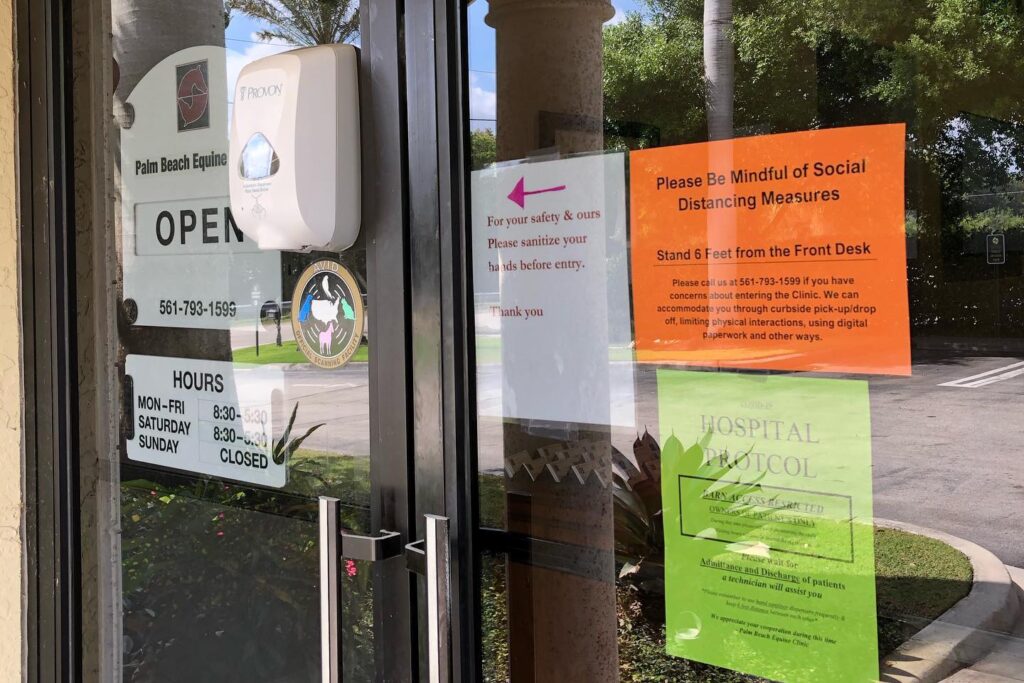
We greatly appreciate the cooperation and encourage those with concerns to call ahead so our team can safely accommodate you and your animals. Preventative measures such as curbside pickup/dropoff, digital paperwork, limited physical interactions, and other safety protocols are being implemented.
Palm Beach Equine Clinic Coronavirus Safety Protocols
- We ask that all visitors wear a protective mask/covering. Anyone on the property, whether in the lobby or hospital, must wear a mask to protect themselves and our staff.
- Hand sanitizers have been posted to our main doors and we encourage all clients to take a pump before entering the clinic.
- Hospital visiting hours have been limited to 8 a.m. to 5 p.m. Please speak with your PBEC veterinarian or call 561-793-1599 for any questions or clarification regarding visiting your horse at the hospital.
- Hospital access is restricted to owners of intensive care patients only.
- Owners are only permitted in the hospital for patient pick up and drop off. Please wait for patient admittance and discharge so a technician can safely assist you.
- As standard medical practice, Palm Beach Equine Clinic continues to implement high-level disinfection and sterilization of medical equipment and devices. To ensure our staff and clients are kept safe, stricter cleaning protocols have been implemented throughout the Clinic and will remain in place for the foreseeable future.
- Please limit the number of individuals present during your horse’s appointment. Our veterinarians are equipped with skilled technicians to handle your horse.
- Please be cognizant of social distancing measures even if you have no signs of illness. Please practice social distancing while at the clinic by keeping at least 6 feet apart from others. We have posted signs, laid down boundary lines from our front desk, and our staff is doing their part to physically separate from clients as best as possible.
- If you or a family member are not feeling well, suspect you have been exposed to COVID-19, or have recently traveled to areas with active COVID-19 transmission, please call the front desk at 561-793-1599 to reschedule your horse’s appointment or arrange for another person to be present at the appointment.
- We encourage horse owners and barn managers to be prepared in the event that they or their staff becomes ill and cannot care for their horse. Having a dependable backup caretaker for your horse and organizing clear instructions on feed, medications, exercise and general care is crucial to preparedness planning.
Palm Beach Equine Clinic continues to stay up to date on COVID-19 developments and will update our clients, partners and fellow equestrians as the situation progresses. Contact Palm Beach Equine Clinic at 561-793-1599 for questions or to speak with a veterinarian.
Additional Coronavirus Resources & News for Veterinary Clients
A View 6-Feet from the Track
Dr. David Priest comments on veterinary life amid COVID-19 and specifically on its impacts in…
Care for Our Horses and Equestrians Amid COVID-19
The following information was requested by the Village of Wellington and posted at https://www.wellingtonfl.gov/767/Equestrian-Information By…
Coronavirus & Veterinary Medicine on Horse Radio Network
Dr. Scott Swerdlin talks COVID-19, equine veterinary medicine, and horse industry impacts with The Horse…
Hunkering Down? We’re Here for You & Your Pets
No matter what life may bring, our pets are here for us. And Palm Beach…
